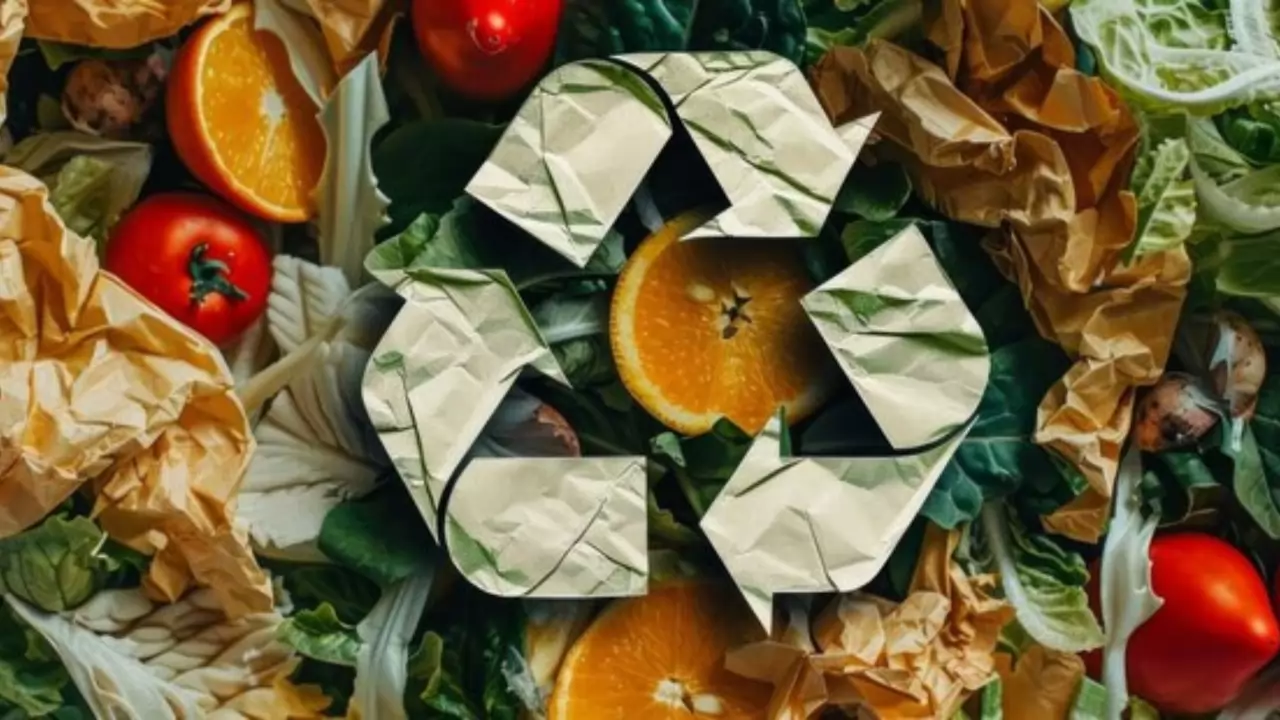
South Korea's comprehensive approach to food waste management is among the most advanced globally. (Freepik(representative image))
Each day, starting at 5 a.m., a fleet of trucks delivers over 400 tons of food waste from homes and restaurants to the Daejeon Bioenergy Center, a facility spanning two football fields. This waste, once considered a burden, is now a vital source of green energy, powering around 20,000 households. The facility is part of a broader network of about 300 sites across South Korea that recycle nearly all of the 15,000 tons of food waste generated daily. This waste is either composted into fertilizer, converted into livestock feed, or processed into biogas, a renewable energy source.
"This facility handles half of Daejeon's daily food waste," explained Jeong Goo-hwang, the center’s chief executive, referring to the city of 1.5 million residents located two hours from Seoul. Without such facilities, much of this waste would end up in landfills, contributing to soil pollution and emitting methane, a greenhouse gas that is significantly more harmful than carbon dioxide in the short term.
Two decades ago, South Korea disposed of 98% of its food waste in landfills. Today, the situation has reversed, with 98% of food waste now recycled into feed, compost, or energy, according to the South Korean Ministry of Environment. The country achieved this transformation by banning food waste from landfills and requiring all residents to separate food waste from other trash, with compliance enforced through fees and fines.
South Korea's comprehensive approach to food waste management is among the most advanced globally. While countries like France and cities such as New York have introduced mandatory composting, few match South Korea’s nationwide system. In contrast, a 2019 estimate from the Environmental Protection Agency (EPA) found that 60% of food waste in the United States ends up in landfills, with only 5% composted and 15% converted into energy.
The U.N. Food and Agriculture Organization estimates that up to 31% of all food produced globally is wasted, enough to feed over a billion people. Food waste contributes between 6% to 8% of global greenhouse gas emissions, making it one of the most pressing environmental challenges.
Jonathan Foley, executive director of Project Drawdown, a nonprofit focusing on climate solutions, called food waste "one of the biggest—and dumbest—environmental problems we have today."
According to U.N. data, the average person generates about 265 pounds of food waste annually. In comparison, an average American produces 304 pounds, while a South Korean generates 242 pounds. Malaysians lead the world in food waste, producing 573 pounds per person, while Slovenians produce the least, at 134 pounds.
In South Korea, food waste recycling has become a routine part of daily life for the country’s 50 million residents. In Seoul, some high-rise buildings are equipped with electronic waste bins that weigh food waste, charging residents monthly based on the amount they dispose of. Others use government-issued compost bags, which cost as little as 10 cents, and are collected in street-side bins. Violators who mix food waste with regular trash can be fined.
For some, like 35-year-old Lee Jaeyoung from near Seoul, separating food waste has become just another household chore. "I get a small sense of fulfillment knowing I’m contributing to lowering carbon emissions," Lee said.
Despite the success in recycling, South Korea continues to face challenges in food waste management. The amount of food waste generated—about 5.5 million tons annually—has remained steady over the past five years, despite the inconvenience and costs associated with recycling.
Moreover, the country has yet to fully optimize the use of recycled food waste. Sorting remains complicated, with certain items like egg shells and bones unsuitable for composting. Contaminants such as plastic or metal can cause significant disruptions at recycling facilities, sometimes requiring up to a year for repairs.
Farmers are also hesitant to use feed made from food waste due to concerns about contamination and unpleasant odors. As a result, South Korea is increasingly turning to biogas facilities, like the one in Daejeon, to manage its food waste. These facilities not only reduce pollution and greenhouse gas emissions but also generate electricity and heating.
However, biogas centers are less efficient during warmer months, when demand for heating decreases. For instance, a Vietnamese delegation visiting the Daejeon Bioenergy Center learned that a similar facility would not be financially viable in Vietnam’s hotter climate.
Jonathan Krones, an associate professor of engineering at Brandeis University, noted that South Korea's system might not be adaptable to countries like the United States, where lower land costs and population density make national-scale waste management standards difficult to implement.
Ultimately, Krones emphasized that the most effective solution to food waste is simply reducing the amount of food wasted. "That’s where the real benefits are," he concluded.





Copyright © 2026 Top Indian News
